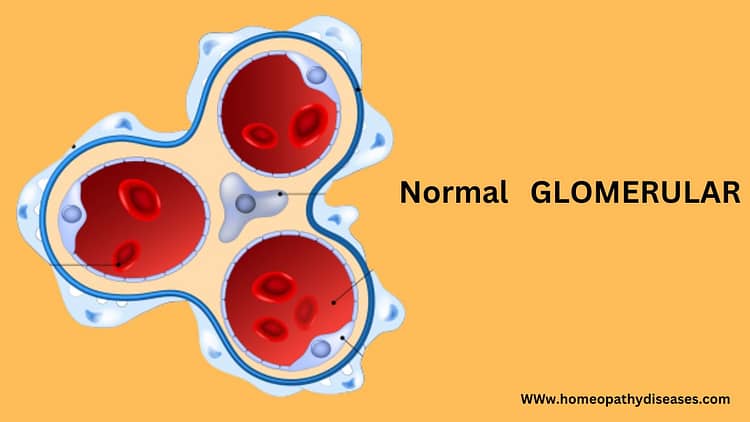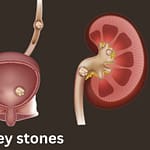
GLOMERULAR DISEASE OVERVIEW
In glomerular disease, the kidneys lose their ability to keep a balance between certain
substances in the blood. In addition to keeping red blood cells in the blood, the kidneys
remove poisons from the bloodstream and excrete them in the urine. Glomerular diseases
cause red blood cells, proteins, and toxins to be released in the urine, but they can also
be retained. Kidney disease may occur on its own (i.e. affect only the kidney) or be
associated with an underlying medical condition that affects other organ systems,
such as lupus, diabetes, or certain infections. In the case of glomerular disease,
it can occur suddenly (“acute” glomerular disease) or slowly over
time (“chronic” glomerular disease). It depends on the type and cause of the
glomerular disease and what kind of treatment is required.
Definition Glomerular Diseases
Renal inflammation/infection in medical language…
Called “Glomerulonephritis”. Remember that inside the kidney there is a fine
structure called glomeruli and in one kidney there are about a million of these
structures. Inflammation, swelling or infection of the kidneys is actually an
inflammation and infection of this structure, the glomerulus. All the functions
of the kidneys depend on them.
What is the cause of glomerulonephritis
- Kidneys get swollen due to throat infection.
- Sometimes due to skin infection.
- due to infection with streptococcal bacteria.
How to Glomerular Disease Symptoms
- Due to inflammation of the kidneys, the patient starts to experience burning and pain in urination.
- They were born
- There is blood in the urine.
- There is pain in the kidneys and fever due to inflammation.
- The patient notices that the color of his urine has changed. Swelling of the eyes and feet.
- After waking up in the morning, the swelling around the eyes is noticeable due to water.
- Blood pressure increases.
- Many times the heart fails.
- And the amount of urine starts to decrease.
- Protein starts coming in the urine.
Test of Glomerular Disease
Urine D/R reveals red blood cells and protein excretion.
Urea and creatinine levels are evaluated by blood test
For that we have to do BUN test.
Throat or skin cultures are done to detect bacterial growth.
Treatment of glomerular disease in Homeopathy
-
Aconite 30
It is a very useful medicine in the initial state. High fever, anxiety, fear of death
and pain are its special signs. It is beneficial to repeat as soon as possible.
-
Firm Phos 12x
It is a very good medicine in early inflammatory conditions.
-
Black Peacock 3x
Taking turns with ferrum phos has amazing benefits. Both of these drugs
are highly successful. If the drug is too much, Magphos 3x is also added give.
-
Apps Malefica 3x
If swelling occurs on the body due to swelling of the kidneys and pressure of this
swelling causes a pit, then this medicine is effective. The patient does not feel thirsty,
there is less urine, there is pain in the kidneys. All the symptoms of this medicine are
aggravated by heat and less by cold are done.
-
Cantharus 3×30
If there is blood in the urine due to inflammation of the kidneys and the burning is severe,
then these are the medicines. The special symptom of this medicine is that the urine
comes drop by drop and Comes with severe irritation.
-
Arsenic album 30
Severe anxiety, nervousness and frequent thirst are the leading symptoms of this drug.
Albumin and casts are excreted in the urine. The patient is nervous and has a fear of death.
Swelling appears on the face.
-
Phosphorus 30
This medicine is useful in kidney disease when there is blood and sand particles
in the urine. This medicine causes swelling on the face of the patient.
-
Firm Mate 30
Swelling and yellowness on the face. If the patient feels cold, these are the medicines.
Note
Apart from this, all the medicines that have been written in the description of kidney
stones, theirs Study.
Describe the Process of Diagnosing Glomerulonephritis
Several clues can be found in the symptoms and signs. In your urine, you may
discover proteins and blood cells. Your doctor can tell your type of illness by looking
at your blood test results.
Sometimes, kidney biopsies are needed. In this test, the kidney is examined under
a microscope after a tiny piece of it is removed with a specialist needle. The doctor
will need to perform a biopsy to determine the best treatment for you.










